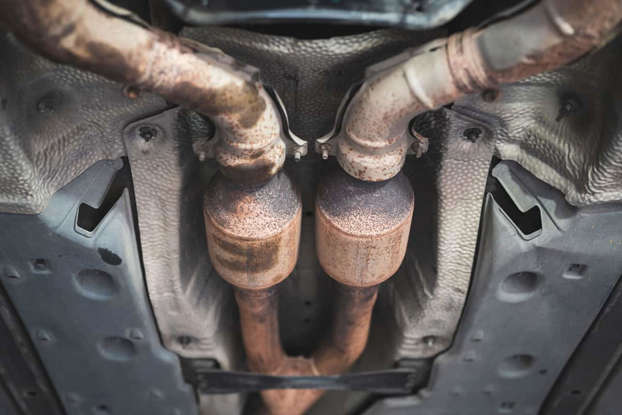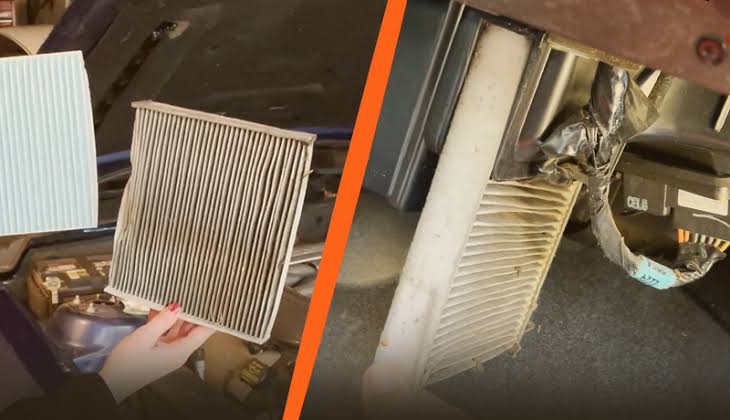Can You Bypass A Catalytic Converter?

The catalytic converter plays a vital role in reducing the harmful emissions produced by your vehicle’s engine. However, many car enthusiasts and mechanics sometimes wonder, “Can you bypass a catalytic converter?” While it’s technically possible, it’s not recommended, and it could lead to a host of problems. This article will break down everything you need to know about bypassing a catalytic converter, the consequences, and why it’s typically not a good idea.
What Is a Catalytic Converter?
A catalytic converter is a key component in your vehicle’s exhaust system. It helps convert harmful pollutants such as carbon monoxide, nitrogen oxides, and hydrocarbons into less harmful gases like carbon dioxide and water vapor. The converter uses a combination of precious metals (platinum, palladium, and rhodium) to facilitate chemical reactions that break down these toxic emissions.
Can You Bypass a Catalytic Converter?
Yes, it is technically possible to bypass a catalytic converter. Some people remove or replace the catalytic converter with a straight pipe or a “test pipe.” This modification effectively bypasses the converter and allows exhaust gases to flow freely through the exhaust system.
However, while it’s possible to perform this modification, it is illegal in many regions and can have serious consequences.
Why Do People Consider Bypassing a Catalytic Converter?
There are several reasons why some car owners might consider bypassing or removing their catalytic converter:
1. Increase Performance
Some believe that removing the catalytic converter can increase engine performance. Without the catalytic converter, exhaust gases can flow more freely, reducing backpressure. This could potentially improve engine efficiency and power, especially in performance vehicles or racing applications.
2. Reduce Cost
Catalytic converters can be expensive to replace. Some owners may opt to bypass the converter to save on repair or replacement costs.
3. Sound Preference
Removing the catalytic converter can alter the sound of a car, making it louder. Some people prefer the deeper, more aggressive exhaust tone that comes with removing the catalytic converter.
Consequences of Bypassing a Catalytic Converter
While bypassing a catalytic converter might seem appealing to some, there are significant downsides and risks involved. Here are some of the key consequences:
1. Legal Issues
In many countries, including the United States, bypassing or removing a catalytic converter is illegal. The Environmental Protection Agency (EPA) in the U.S. has strict regulations that require all vehicles to have a functioning catalytic converter. In many states, including California, removing or bypassing a catalytic converter can result in hefty fines and make your car illegal to drive on public roads.
2. Failed Emissions Tests
In regions where emissions testing is mandatory, bypassing a catalytic converter will cause your vehicle to fail the emissions test. Without a properly functioning catalytic converter, your vehicle will likely produce higher levels of pollutants, leading to a failed test. In many areas, you won’t be able to register your vehicle without passing the emissions test.
3. Check Engine Light (CEL)
When you remove or bypass the catalytic converter, your vehicle’s onboard diagnostic system may detect a malfunction or fault. This could trigger the check engine light (CEL), alerting you to the issue. In many cases, the car’s computer system might not be able to adjust to the lack of a catalytic converter, leading to performance issues and potential long-term damage.
4. Decreased Fuel Efficiency
Although some people believe bypassing a catalytic converter increases performance, this is often a myth for regular street-driven vehicles. In fact, it could lead to a loss of fuel efficiency as the vehicle’s engine control unit (ECU) may struggle to adjust to the changed exhaust flow.
5. Potential Engine Damage
Bypassing the catalytic converter can lead to an imbalance in the exhaust system, which might cause issues with the engine’s air-fuel ratio. This can potentially lead to engine damage over time, as the system is no longer operating as designed.
6. Harmful Environmental Impact
One of the primary reasons for having a catalytic converter is to reduce harmful emissions. Bypassing it means that your vehicle will release far more harmful pollutants, contributing to air pollution and environmental degradation. This not only harms the planet but also goes against the purpose of emission regulations.
7. Impact on Vehicle Resale Value
If you decide to sell your vehicle, having a removed or bypassed catalytic converter could significantly reduce its value. Many buyers, especially in regions with strict environmental laws, may be unwilling to purchase a car that has been tampered with in this way.
Alternatives to Bypassing a Catalytic Converter
Instead of bypassing your catalytic converter, consider these legal alternatives:
1. High-Performance Catalytic Converters
If you’re looking for better performance, you can opt for a high-flow catalytic converter. These are designed to allow for better exhaust flow while still meeting emissions standards.
2. Exhaust System Upgrades
Consider upgrading your entire exhaust system, including the catalytic converter, to one that is more efficient and can handle increased performance without bypassing the emissions control.
3. Regular Maintenance
If your catalytic converter is clogged or malfunctioning, it may be worth trying to clean it or replacing it with a new one to restore your vehicle’s performance without bypassing the system.
Conclusion
While bypassing a catalytic converter may seem like an attractive option for improving performance or saving on costs, the consequences far outweigh the benefits. It’s illegal in many regions, can result in failed emissions tests, lead to engine problems, and cause environmental harm. Rather than bypassing your catalytic converter, explore legal alternatives like high-performance catalytic converters and exhaust system upgrades.
Remember, maintaining a functional catalytic converter is crucial not only for your vehicle’s performance but also for reducing harmful emissions and ensuring compliance with environmental regulations. If you’re unsure about the condition of your catalytic converter, it’s best to consult a professional mechanic for guidance.





